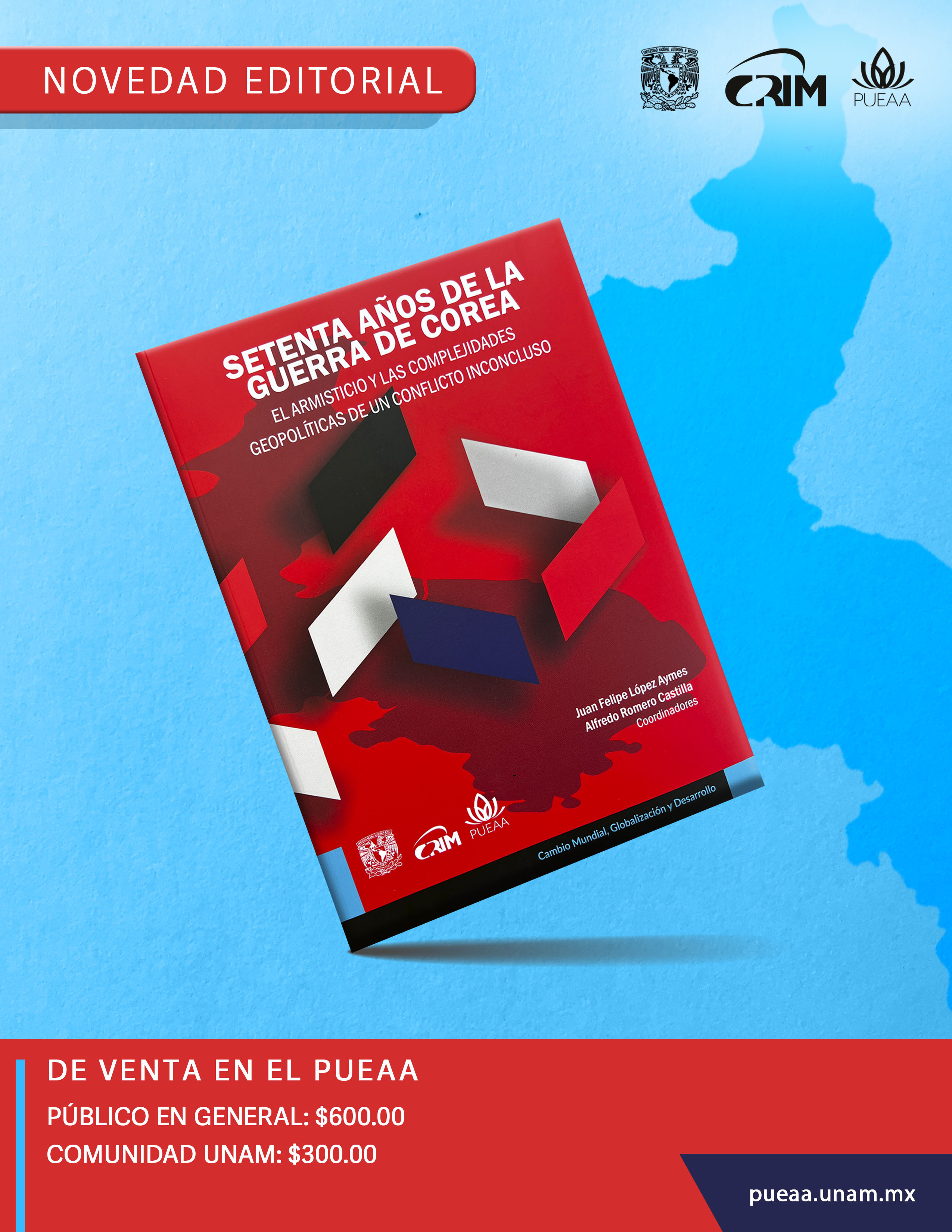Pioneer in the study of Asia at the UNAM, he began his training in the Oriental Studies Program of the College of Mexico, where he studied China and its language. Two years later, with a scholarship from the then Teacher Training Program of UNAM, he studied Korean at the University of Yonsei and the Master in Asian Studies at the Hanguk University of International Studies, both in Seoul, Republic of Korea (1967-1970).
Since 1970 he teaches the general course of Asia and the specialized seminars on Asian Studies in the bachelor and postgraduate levels of the Faculty of Political and Social Sciences; he also teaches the course Introduction to the study of International Relations. He has done researches on historical, cultural, and international relations focused on China, Korea, Japan, Vietnam, and Australia. He has been a researcher and visiting professor at the Institute of Developing Economies (1978) and the University of Tsukuba (1986) in Japan, and the Korea Development Institute (1992). He served as Head of the Division of Postgraduate Studies in Political and Social Sciences, UNAM, (1995), and was representative of the academic sector in the Binational Commission Mexico-Korea (2000-2005).


